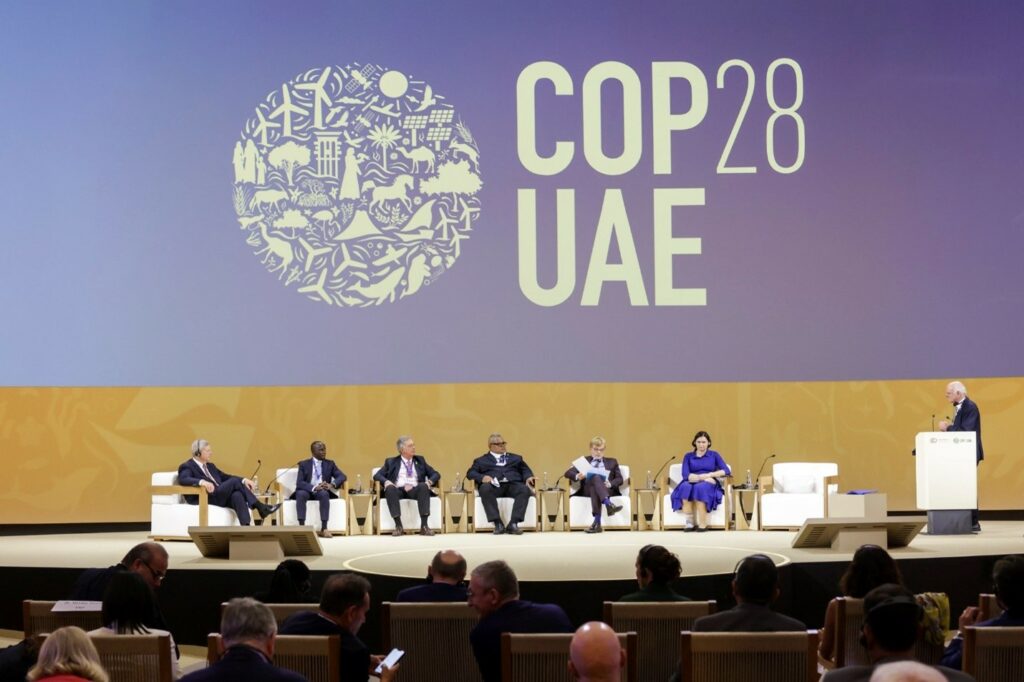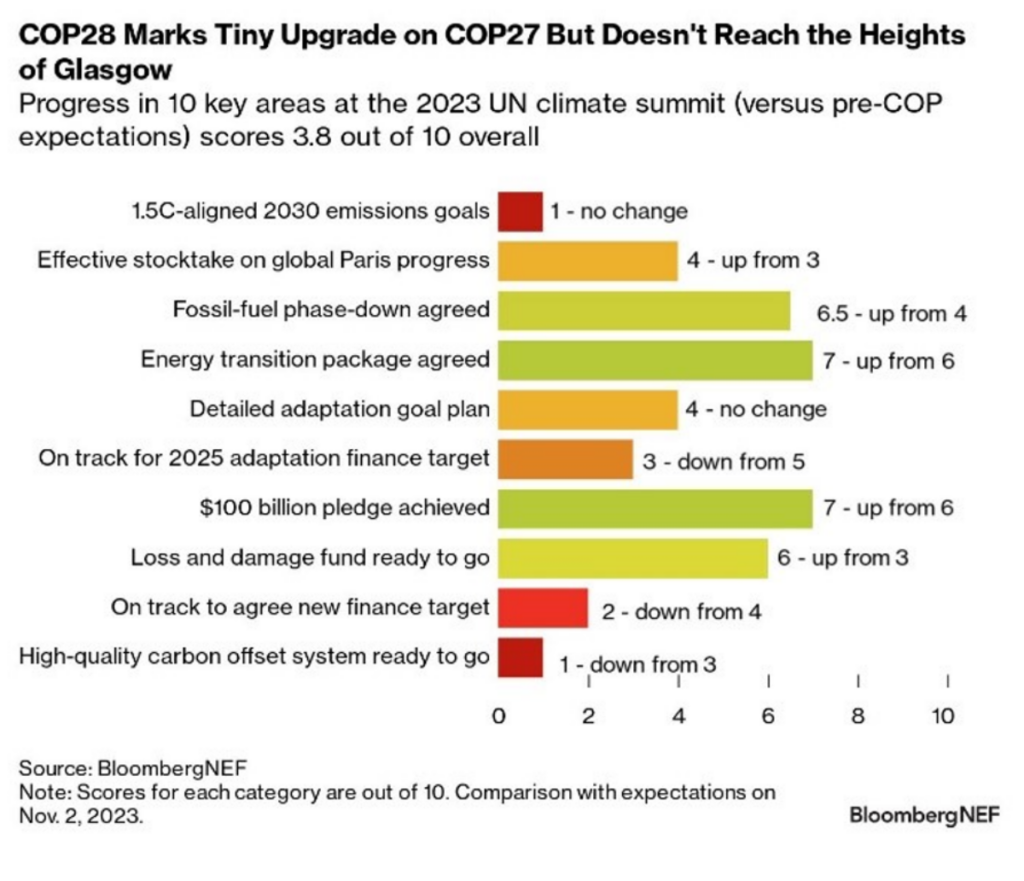While much of the headlines focused on the historic agreement to phase out fossil fuels, COP28 elevated water in the climate agenda.
COP28 was significant for several reasons. First, it was the largest such event ever, with close to 100,000 people descending on Dubai. It also marked the first COP decision to address fossil fuels, with representatives from nearly 200 countries demonstrating that the world is united in ‘transitioning away’ from the planet-warming resources.
But from our perspective, it was significant for another reason. COP28 brought water into the mainstream; elevating water within the climate agenda and positioning it as a critical enabler for both climate change adaptation and mitigation solutions.
COP28 gave unprecedented visibility and support for water-related issues, with several events focused on emphasizing the importance of protecting and restoring freshwater ecosystems for climate action, building urban water resilience, and the water-food nexus. Events culminated with COP28’s flagship programming on Food, Agriculture and Water Day.

Implementing the Emirates Declaration on Resilient Food Systems, Sustainable Agriculture, and Climate Action (Photo by COP28 / Christophe Viseux)
Here’s a quick recap of some of the key water-relevant events and actions:
- Protecting freshwater resources: 43 countries joined the Freshwater Challenge, a commitment to protect and restore 300,000 km of rivers and 350 million hectares of wetlands by 2030. This country-driven initiative is now the largest-ever freshwater conservation effort and aims to tackle climate change and reverse nature loss.
- Funding water security: The United Arab Emirates pledged $150 million in new funding for water security solutions in vulnerable communities. The Middle East is already the most water-scarce region in the world. The United Kingdom also announced intentions to scale up a partnership with the World Bank, including offering £39 million in funding to provide technical assistance to low-income and climate-vulnerable countries so they can better manage their water resources. The Just Transitions for Water Security program aims to strengthen climate resilience, support more sustainable food systems and improve drought and flood management, all while making sure everyone has access to clean water.
- Improving urban water resilience: Launched at the UN 2023 Water Conference in advance of COP28, the Urban Water Catalyst Initiative (UWCI) is a global initiative that aims to mobilize public and private investment for climate-resilient urban water. Its goal is to improve urban water resilience and bridge the SDG6 financing gap by accelerating improvements in the technical and financial performance of urban water and sanitation utilities in low- and middle-income countries.
- Building water-resilient food systems: Over 130 countries, representing over 5.7 billion people, 70% of global food resources, and 76% of total emissions from the global food system signed up to the leaders-level ‘COP28 UAE Declaration on Sustainable Agriculture, Resilient Food Systems, and Climate Action.’ More than 20 countries participated in the first COP ministerial dialogue on building water-resilient food systems, which was co-hosted by the UAE and Brazil, which includes commitments to adapt and transform food systems and include food and land use targets in their Nationally Determined Contributions (NDCs) and National Adaptation Plans (NAPs) by 2025.
Other notable outcomes
Water is often how most communities experience the impact of climate change, particularly through drought, water scarcity, flooding, and rising sea levels. The Loss and Damage Fund, established at COP27, aims to provide financial assistance to nations most vulnerable and impacted by the effects of climate change. COP28 built upon this progress, operationalizing the Fund and reaching over US$700 million in pledges – including US$100 million each from Germany and from the United Arab Emirates.
Parties also adopted a framework for the global goal on adaptation, with 2030 targets to conduct impact, vulnerability, and risk assessments; adopt and implement adaptation plans and policy instruments; and set up monitoring, evaluation, and learning systems for national adaptation efforts.
The COP28 report card
In November, BloombergNEF identified 10 areas where governments needed to make progress at COP28 in order to take a meaningful step toward the goals of the Paris Agreement. Each area is scored out of 10 based on how much headway was made in Dubai, and assigned a weighting based on importance and urgency.
Here’s a look at how the final outcomes compared against the early expectations.

BloombergNEF gave COP28 a final score of 3.8/10, with many experts wishing to have seen a more ambitious push to phase out fossil fuels, more funds to support decarbonization and adaption efforts in poor countries and less focus on costly carbon capture and the burning of natural gas.
Negotiations on carbon markets will continue next year, as will the discussion on climate finance. COP29 will take place in Baku, Azerbaijan, in November 2024, and COP30 will be hosted by Brazil, in Belém do Pará, in 2025.
